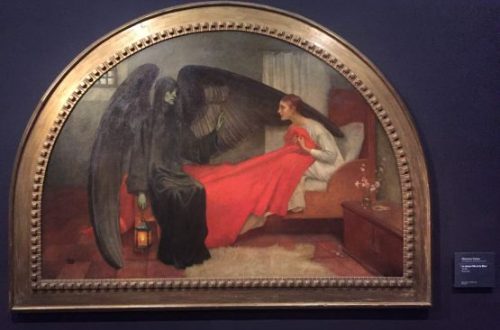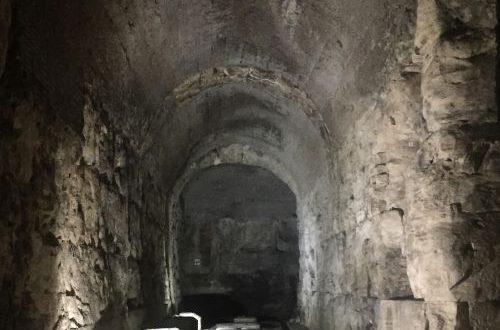
UN POEMA DE LOUISE GLÜCK
A MYTH OF DEVOTION
WHEN HADES DECIDED he loved this girl
he built for her a duplicate of earth,
everything the same, down to the meadow,
but with a bed added.
Everything the same, including sunlight,
because it would be hard on a young girl
to go so quickly from bright light to utter darkness.
Gradually, he thought, he’d introduce the night,
first as the shadows of fluttering leaves.
Then moon, then stars. Then no moon, no stars.
Let Persephone get used to it slowly.
In the end, he thought, she’d find it comforting.
A replica of earth
except there was love here.
Doesn’t everyone want love?
He waited many years,
building a world, watching
Persephone in the meadow.
Persephone, a smeller, a taster.
If you have one appetite, he thought,
you have them all.
Doesn’t everyone want to feel in the night
the beloved body, compass, polestar,
to hear the quiet breathing that says
I am alive, that means also
you are alive, because you hear me,
you are here with me. And when one turns,
the other turns—
That’s what he felt, the lord of darkness,
looking at the world he had
constructed for Persephone. It never crossed his mind
that there’d be no more smelling here,
certainly no more eating.
Guilt? Terror? The fear of love?
These things he couldn’t imagine;
no lover ever imagines them.
He dreams, he wonders what to call this place.
First he thinks: The New Hell. Then: The Garden.
In the end, he decides to name it
Persephone’s Girlhood.
A soft light rising above the level meadow,
behind the bed. He takes her in his arms.
He wants to say I love you, nothing can hurt you
but he thinks
this is a lie, so he says in the end
you’re dead, nothing can hurt you
which seems to him
a more promising beginning, more true.
UN MITO DE DEVOCIÓN
CUANDO HADES DECIDIÓ que amaba a esta joven,
le construyó una copia de la tierra:
todo igual, hasta el mismo prado,
pero con una cama agregada.
Todo idéntico, incluyendo la luz solar,
porque sería difícil para la muchachita
pasar de la luz brillante a la oscuridad.
Gradualmente, pensó, le presentaría la noche, primero como sombras de hojas que aletean.
Luego la luna, más tarde las estrellas. Después sin luna, sin estrellas. Permitirle a Perséfone que se acostumbre con lentitud. Al final,
pensó, que lo encontraría reconfortante.
Una copia de la tierra
excepto que aquí había amor.
¿No es amor lo que todos quieren?
Esperó muchos años,
edificando un mundo, viendo
a Perséfone en el Prado.
Perséfone, que huele, que prueba.
Si tienes un apetito, pensó,
los tienes todos.
Acaso no todos quieren sentir en la noche
el cuerpo amado, la brújula, la guía;
escuchar la respiración silenciosa que dice
estoy viva, que significa también
que estás viva, porque me escuchas,
estás aquí conmigo, Y cuando uno voltea,
el otro voltea–
Eso es lo que sintió el señor de la oscuridad,
viendo al mundo que había
construido para Perséfone. Nunca pasó por su mente que no habría nada que oler aquí,
sin duda, nada que comer
¿Culpa, terror, miedo al amor?
Estas cosas no las podía imaginar;
ningún amante las imagina.
Sueña, se pregunta cómo llamar a este lugar.
Primero piensa: El Nuevo Infierno. Después: El Jardín.
Al final, decide llamarlo
La juventud de Perséfone.
Una luz suave alzándose sobre el nivel del prado,
detrás de la cama. La toma en sus brazos.
Quiere decirle te amo, nada puede lastimarte
pero piensa
que esto es una mentira, así que al final dice:
estás muerta, nada te puede lastimar,
lo cual le parece a él un principio
más prometedor, más verdadero.

Yasmín Rojas escribe su tesis de investigación doctoral (UV) sobre la obra poética y las canciones de Idea Vilariño. Es traductora y co-directora de Isotopías.





